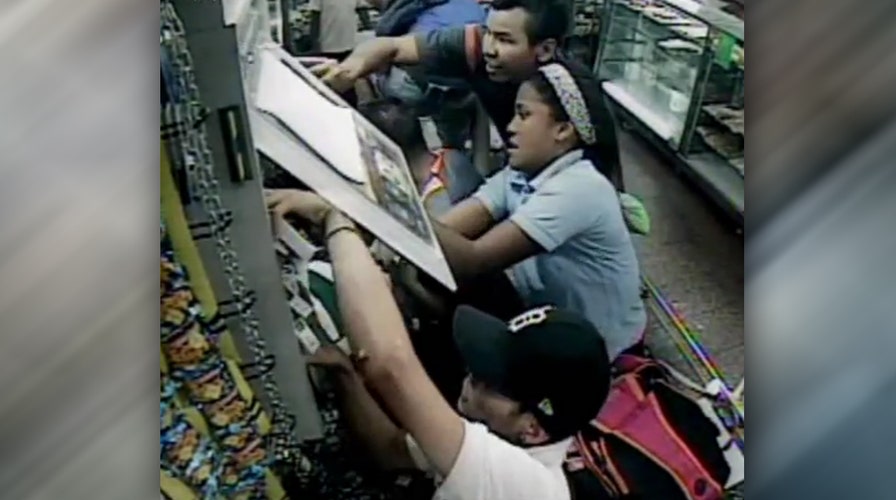Looters swarm, ransack bakery in Venezuela
Raw video: Security camera captures group raid store's shelves in Caracas
Secretary of State John Kerry recently expressed the clearest American concern yet over the ruin of Venezuela at the hands of its’ President Nicolas Maduro. Speaking at the General Assembly of the Organization of American States (OAS), Kerry rightly criticized a regime which has overseen Venezuela’s descent into abject poverty and threatened to consign Venezuelan democracy to history.
Kerry admirably called for the release of political prisoners, jailed purely for their opposition to Maduro. Equally importantly, he demanded respect for freedom of expression and action to alleviate the crippling shortages which have left Venezuelans struggling to feed their families. Most importantly perhaps, Kerry backed the popular demand for a lawful referendum on Maduro’s rule by a Venezuelan people rapidly losing all hope.
All of this is to be applauded. Venezuela is in a desperate and dangerous state. In recent months, infrequent power cuts have turned into severe rationing of electricity. Long supermarket lines have transformed into a frantic and increasingly deadly scramble for food. Medical shortages have become so severe that 95 per cent of hospitals are suffering a dangerous shortage of supplies. The high cost in lives is already underway. Babies are needlessly dying in hospitals, while at least four people were killed in food riots in June, as desperation takes on an Orwellian tone. Social order is precariously poised to collapse at any moment. Venezuela is facing a race against time before it implodes.
And so, Washington isn’t facing just a complex policy issue over Venezuela. American involvement has become a life or death issue, especially as Maduro has no discernible plan to rescue his country. Maduro’s strategy is simple denial - close his eyes, point fingers at imaginary foreign conspiracies and pray for a highly unlikely dramatic rise in oil prices.
Venezuela is facing a race against time before it implodes.
Consequently, if Kerry’s protestations of concern are to have any real meaning, these words must be turned into action. Washington must now use its weight as the regional powerhouse and coax Latin America into demanding change in Venezuela. Doing so is no longer simply a question of American values and prestige. It has become quite simply a matter of saving lives.
Of course, persistent, direct American pressure would most likely be manipulated by Maduro to fuel his self-serving conspiratorial fantasies. Therefore, if Washington wants real influence, it will need to exert pressure via regional partners. America must begin to take membership of the OAS seriously. Maduro has so far been able to count on a degree of neighbourly fealty to protect himself against any meaningful action. Last month, member states pushed back on OAS Secretary General Luis Almagro’s call to invoke the Democratic Charter, a convention which could lead to the Venezuelan government’s suspension.
It would appear obvious on which side of this particular regional fence Washington should fall. Yet, Kerry recently made clear that he opposes Almagro’s “unconstructive” initiative. Instead, he expressed support for dialogue between Maduro’s government and opposition leaders, spearheaded by former Spanish Prime Minister Zapatero. This is a wholly wrongheaded initiative. Not only will such a dialogue eat up precious time which Venezuela can no longer afford, but Maduro quite simply has no intention of relinquishing power.
The time for niceties has passed. Venezuela needs change now. And only a heavyweight like the United States can deliver it. Washington must re-examine its approach and turn the screws on regional powers to endorse Almagro’s initiative. It is not just the future of Venezuelan democracy at stake. Countless Venezuelan lives are too.

